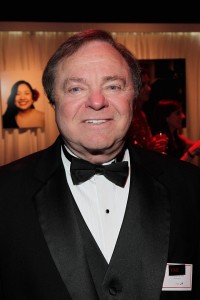Harold Hamm Says U.S. Oil Industry No Longer Needs Keystone XL Pipeline
-
Logan Layden

Jemal Countess / Getty Images for TIME
Harold Hamm in April 2012 at TIME Magazine's 100 Most Influential People In the World gala in New York City.
Harold Hamm, CEO of major Oklahoma-based petroleum producer Continental Resources, used to be against the Keystone XL pipeline.
Then he was for it.
Now he says the pipeline isn’t really needed anymore. At least, he’s not counting on it, as northeast Texas public radio station KETR’s Mark Haslett reports:
[Hamm] has said that his company’s booming operations in North Dakota’s Bakken field are relying on rail transport to move its product.
In a conversation with Reuters, when asked whether Keystone XL is still needed, Hamm said “not for our Bakken (crude oil). And is it needed for the industry? I don’t think so … not in the U.S.
StateImpact reported in September 2012 that “The Oklahoma oilman stood alongside landowners and environmentalists, and formed a lobby group of Oklahoma oilmen that successfully squashed permits for the pipeline.”
He didn’t want cheap Canadian crude undercutting Continental’s market.
But that all changed when TransCanada, the company building the pipeline, agreed to build another line connecting the Bakken Field in the northern U.S. — where Hamm has oil interests — to the rest of the project.
Suddenly, Hamm had a new way to get crude to refineries on the gulf coast. As an energy advisor for the Mitt Romney presidential campaign, he helped develop an energy policy that was very much pro-Keystone XL.
Since then, however, Hamm tells Reuters railroads have become more and more important and viable as a way to transport crude, a trend StateImpact reported on Dec. 6.
“Rail has been a big factor and, you know, proven to be a very effective way,” Hamm said on Dec. 12 Continental now ships 90 percent of its crude oil by rail, Hamm told Reuters.
Continental still plans to use the Keystone XL extension it pushed to get built.
